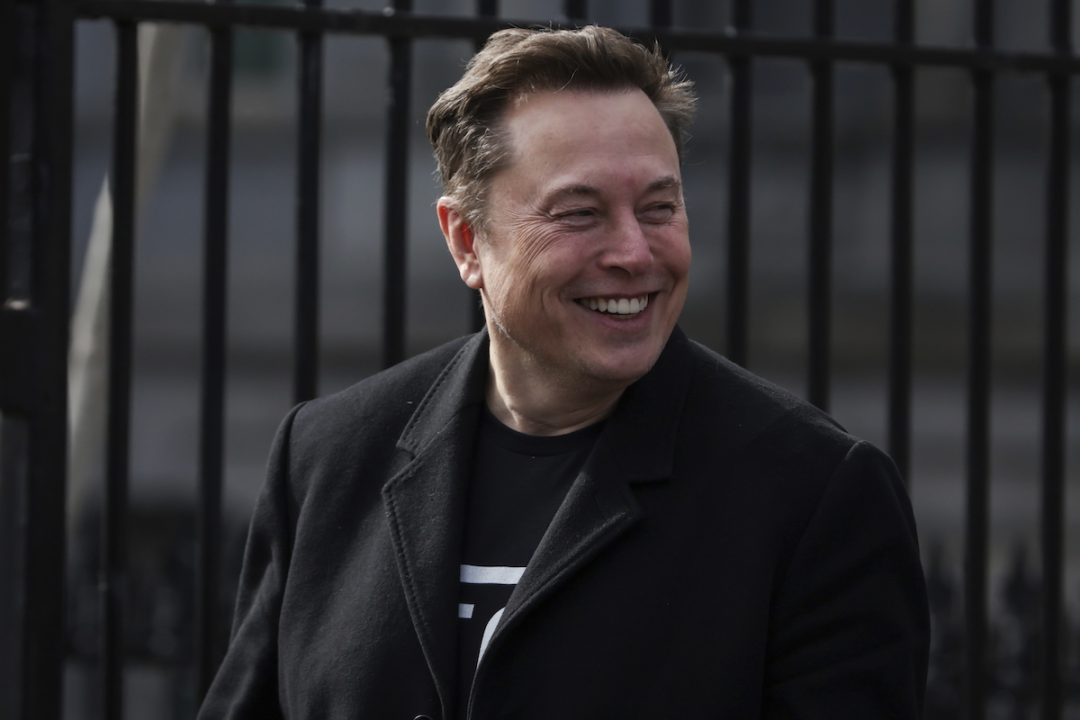
In recent court filings, the White House has sought to clarify Elon Musk’s role within the Department of Government Efficiency (DOGE), the sweeping initiative aimed at overhauling the federal government through AI-driven automation.
Joshua Fisher, director of the White House Office of Administration, stated in a three-page declaration that Musk serves as a “senior adviser to the president,” possessing “no actual or formal authority to make government decisions himself.”
This statement, filed in a federal court case involving state attorneys general challenging Musk’s influence, does not identify DOGE’s official administrator, further deepening concerns about the department’s leadership and decision-making processes. Moreover, given the unofficial role of “senior advisor,” such ambiguity seemingly shields Musk from responsibility, granting him power without accountability while making legal and congressional oversight nearly impossible.
In early February, the White House identified Musk’s status as a “special government employee” (SGE). This designation allows him to serve as a temporary advisor, for up to 130 days annually. This status grants Musk certain exemptions from standard government disclosure rules, such as financial disclosures and ethics agreements. The position does not come with full government responsibilities or oversight.
Public Statements
Despite the White House’s official clarification that Musk holds no formal authority over DOGE, both Trump and Musk have consistently spoken as if Musk were leading the initiative.
From campaign rhetoric to countless social-media posts, interviews, and public appearances, both men have unequivocally portrayed Musk as a key figure in DOGE’s leadership.
The most direct example came on February 11, when Musk appeared alongside Trump in the Oval Office to discuss DOGE’s mission. During the event, Trump referred to DOGE as “your team” when addressing Musk. On that day, Trump signed an executive order expanding DOGE’s authority to “optimize” the federal workforce, further reinforcing Musk’s influence over the agency’s direction.
Just two days later, on February 13, Musk spoke at the World Government Summit in Dubai via video link. Sporting a “Tech Support” t-shirt, he spoke about DOGE’s transformative approach to digitization and automation of government operations. Musk’s comments aligned closely with DOGE’s stated mission, further blurring the lines between his de facto role in leading the initiative and the White House’s official position denying his formal authority.
DOGE’s Website
If one were to embark on a quest to uncover who, exactly, is responsible for the radical transformation of the federal government, DOGE’s official website would be of little help.
The site offers no clarity on who is actually in charge, no defined oversight structure, and no disclosed budget details. Instead of transparency, it presents a vague, self-congratulatory narrative, packed with promotional material from Musk’s social-media platform, X.
Furthermore, for an initiative that champions budgetary efficiency as one of its core objectives, DOGE’s most publicly touted achievement — its claimed “savings” — remains opaque.
The “Savings” page estimates $55 billion in savings through measures such as fraud detection, contract cancellations, asset sales, and workforce reductions. However, the details provided are minimal. They include only a subset of contract and lease cancellations, accounting for just 20 percent of the reported savings.
The remaining 80 percent of DOGE’s claimed financial impact is undocumented, making it impossible to independently verify the legitimacy of these savings or assess their long-term economic effects. The site promises that all data will eventually be uploaded in a “digestible and fully transparent manner,” but as of now, it offers little more than a headline figure with no real accountability.
Lawsuits Against DOGE and Musk
As concerns over DOGE’s unchecked power mount, two major lawsuits — one filed by state governments and another by federal employees — are challenging Musk’s role and the legality of DOGE itself. Musk is a named defendant in the states’ case, which directly challenges his authority within the federal government.
At the heart of states’ case is the Appointments Clause of the U.S. Constitution, which requires that high-level federal officials be appointed by the president and confirmed by the Senate. The lawsuit argues that, despite Musk having no formal title, he wields executive power over federal agencies, directing budget freezes, mass layoffs, and data access across multiple government departments — all without congressional approval.
Meanwhile the federal employees filed a lawsuit against Trump and the Office of Management and Budget (OMB). They allege that the DOGE has unlawfully accessed sensitive personal information of federal employees, violating the Privacy Act of 1974. The plaintiffs claim that DOGE obtained this data without proper national security vetting and used it for discriminatory and illegal purposes. That included targeting employees for unauthorized buyouts and terminations.
While Trump has fully backed Musk’s activities, the outcome of these lawsuits could set a crucial legal precedent on the limits of presidential power in delegating authority to a private individual.
DOGE: The Unanswered Questions
So far, the most audacious reengineering of the U.S. government in history remains frustratingly secretive. While headlines and Musk-run X trumpet DOGE’s supposed “achievements” in gutting the government while saving billions of dollars, the deeper realities of its leadership, oversight, and long-term consequences remain murky.
Who Actually Runs DOGE?
The lack of a named administrator suggests that DOGE operates in a shadowy, non-transparent manner. If Musk is not officially in charge, then who is actually making executive decisions? If DOGE operates under Trump’s executive authority, how much direct oversight does the president have? And why has the identity of its true leadership remained undisclosed?
This ambiguity shields DOGE’s decision-makers from legal and congressional scrutiny, allowing major government restructuring efforts to proceed without clear accountability.
Musk’s Influence
Despite White House claims that Musk holds no formal authority, his public appearances and Trump’s own words suggest otherwise. DOGE is reportedly staffed by Musk’s young loyalists, making it increasingly difficult to tell where government ends and corporate power begins.
What emerges is not just a policy shift, but a fundamental transformation of governance — one where unelected tech moguls wield influence far beyond public accountability. As Musk’s role remains both denied and undeniable, the line between a democratic state and an AI-powered oligarchy grows dangerously thin.
The potential for corporate conflicts of interest is glaringly obvious. Musk’s businesses — Tesla, SpaceX, X, and Neuralink — rely on AI advancements. If DOGE automates government processes, these companies could profit in ways the public isn’t privy to.
Automation, AI, and Data Control
DOGE’s fundamental premise is to embed AI into government functions. This introduces profound risks.
Who ensures data security when AI systems controlled by Musk’s associates manage federal records? Could sensitive information be accessed by private-sector companies? How can we ensure transparency in AI algorithms when their development and application may be controlled by private interests? Without congressional oversight, who ensures AI-driven governance remains ethical and unbiased? Finally, who holds accountability for decisions made by AI, especially if those decisions result in harm or bias?
In the Dark
The combination of secrecy, Musk’s unchecked influence, AI-driven decision-making, and the potential for corporate conflicts of interest makes DOGE one of the most opaque and high-risk initiatives in modern U.S. governance.
Until the fundamental questions of who runs DOGE, how its decisions are made, and how the conflicts of interests are addressed, it remains an experiment in governance by algorithm — one with enormous consequences, but none of the transparency to match.
Related:
Reprogramming the Republic: Musk’s Quiet AI Takeover of Federal Power
AI and the Federal Purse: Musk’s Reforms of Treasury Oversight
DOGE at the Pentagon: The Business of More “Efficient” Wars
Trump Unveils $500 Billion “Stargate” AI Project, in Line With WEF Agenda





